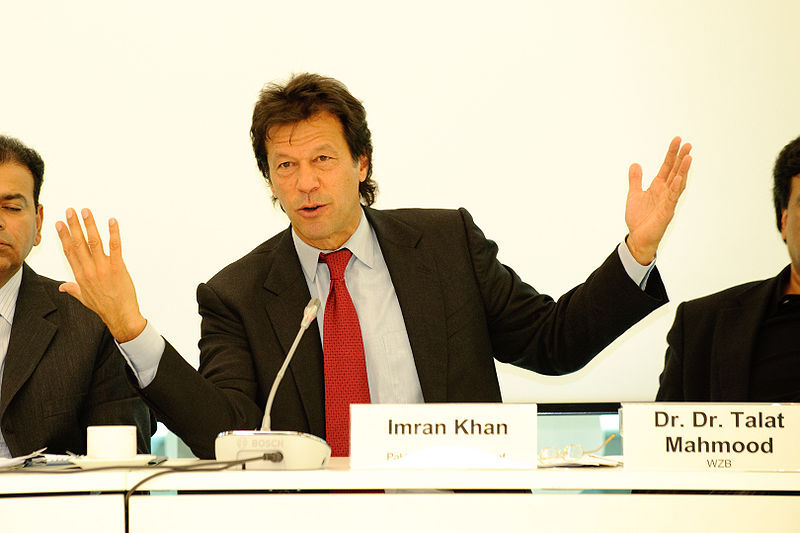Women in Pakistan fear election results will bring oppression

Former cricketer Imran Khan claimed victory Thursday in Pakistan’s parliamentary elections, raising concerns about how his leadership could impact women’s lives. Khan, who heads up the Tehreek-e-Insaf party (PTI), has previously denounced the “Western concept of feminism” and opposed legislation making it easier for rape victims to report their assaults.
The elections were marred with charges of vote rigging, and some political commentators allege that it was Pakistan’s powerful military—and not the country’s electorate—that was behind Khan’s win.
“If, as Imran Khan claims, his party … is victorious in the Pakistani general election,” (despite accusations of vote-rigging) wrote author Rafia Zakaria in an opinion piece for CNN, “the women of that nation may face a disastrous era of gender discrimination and repression.”
Khan has come under criticism for his positions on women’s rights as well as his conduct in his private life. In June, Khan lamented how “Western feminism” had impacted traditional gender roles. “A mother is the biggest influence in her child's life,” Khan said in an interview with Hum News. “I disagree with the Western concept of feminism; it has completely degraded the role of a mother.”
The incoming prime minister has a track record of opposing legislation to protect women’s rights. In 2006, Khan voted against the women’s protection bill, which sought to reform the country’s 1977 Hudood Ordinances by better protecting rape victims from being prosecuted for crimes like adultery or premarital sex. Prior to the bill being passed, rape victims were at risk of criminalization unless they could locate four male witnesses who could testify that the act was nonconsensual. (The Hudood Ordinances were passed as part of the military ruler Zia-ul-Huq’s Islamisation process. They added new criminal offenses like adultery and fornication to the penal code as well as increased punishments, including whipping and stoning).
Khan has been accused of “mainstreaming extremism” through his support of the country’s blasphemy laws, which stand to threaten atheists and religious minorities. “Previously it was only a bunch of extremists spreading hatred against Ahmadis, one man told the Malaysian New Straits Times. The Ahmadi Muslims have beliefs that are seen as blasphemous within some Islamic schools of thought. “Now mainstream parties like the PTI are doing it.”
The former cricketer, Khan, has come under scrutiny for engaging in misconduct in his private life. His second wife made accusations of domestic abuse when the two divorced. And in August 2017, a woman in Khan’s party alleged that he had sent her inappropriate text messages.
According to Zakaria, the “religious hardliners” who’ve supported Khan’s election are especially dangerous since they have eagerly pushed for the more aggressive enforcement of the Hudood Ordinances. “Increased prosecutions under these laws, which equate control of women as being authentically Islamic and doggedly anti-Western, will destroy the legal and political progress Pakistani women have made in recent years,” she wrote.
“When women’s progress is seen as a Western concept, the result is unending suffering and retrogression for all Pakistani women who want to move toward gender equality.”
More articles by Category: International, Politics
More articles by Tag:



























